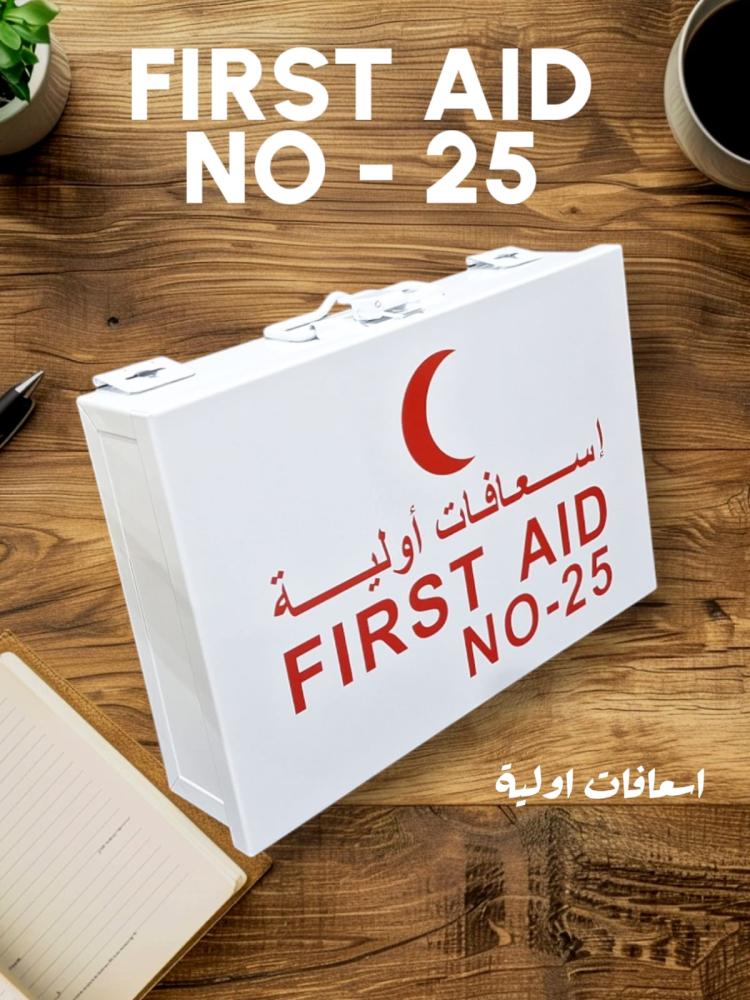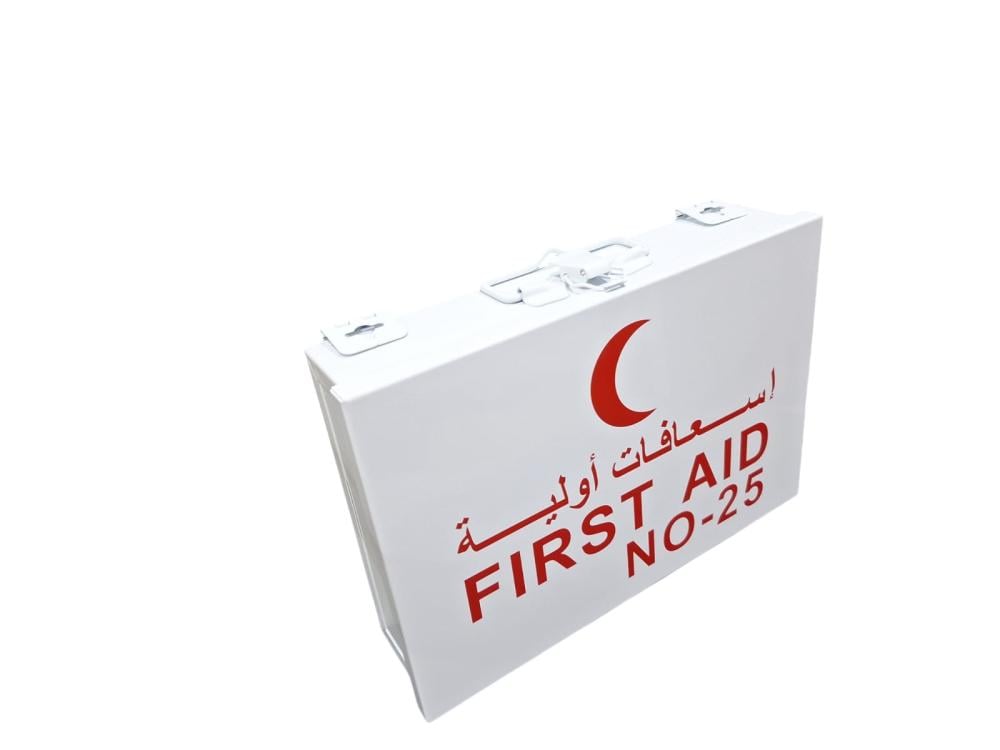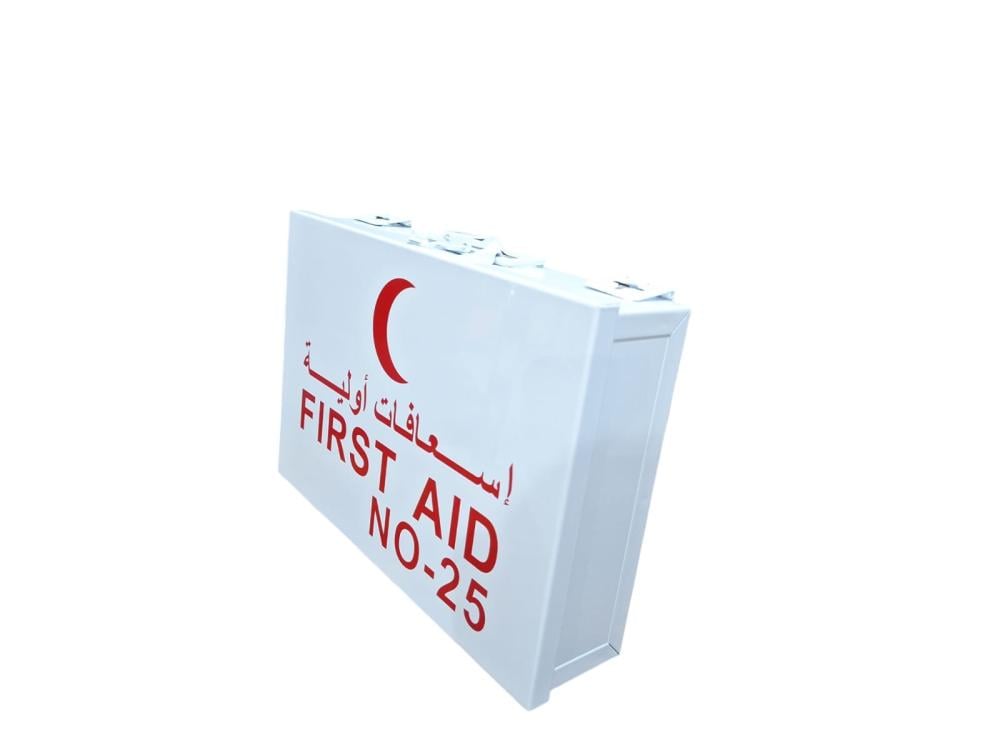- First Aid Kit No. 25
- A First Aid Kit No. 25 is a standardized kit designed to provide essential medical supplies for treating minor injuries in a workplace or other setting where a larger number of people may be present. The number "25" typically indicates the kit's capacity to serve a group of approximately 25 individuals.
- Contents of a First Aid Kit No. 25:
- While the exact contents may vary slightly depending on the manufacturer and specific regulations, a typical First Aid Kit No. 25 will include a range of items to address common injuries:
- Manual:1
- Scales:1
- Tweezers:1
- Adhesive Tape 1.25cmx5m:2
- Alcohol Pad:30
- BZK Antiseptic Towelettes:30
- Cotton Balls:1
- Eye pads:2
- Gauze pad 4*4:2
- Adhesive Bandage 40 * 10mm:20
- Adhesive Bandage Butterfly:20
- Adhesive Bandage 76 * 25mm:40
- Adhesive Bandage 76 x 19mm:40
- elastic bandage 7.5cmx4.5m:1
- elastic bandage5cmx4.5m:1
- pbt bandage 7.5cmx4.5m:1
- pbt bandage 5cmx4.5m:1
- Triangular Bandage:1
- Ice pack 70g:1
- Emergency blanket:1
- Pvc gloves:1
- CPR mask:1
- Metal Box 270*185.65mm:1
- FIRST AID NO-25
- Key Points:
- Regular Inspection: It's crucial to inspect the contents of the kit regularly, checking for expired medications or supplies that need replenishing.
- Accessibility: The kit should be stored in a clearly marked, easily accessible location.
- Training: Employees or individuals responsible for the kit should receive basic first aid training to ensure proper use of the supplies.
- Remember: A First Aid Kit No. 25 is intended for treating minor injuries. For serious medical emergencies, always seek professional medical attention.
- Why do you need a first aid box?
- Respond quickly to emergencies: First aid can help stop bleeding, relieve pain, and prevent injuries from getting worse before medical help arrives.
- Comply with regulations: Many businesses and organizations require properly stocked first aid boxes.
- Reassure employees and visitors: Having a first aid box shows concern for everyone’s safety.
- How to choose a first aid box?
- When choosing a first aid box, consider the following factors:
- Size: Choose a box that is large enough to hold all the supplies you need.
- Material: The box should be made of a durable, sterilizable material.
- Price: Compare prices between different suppliers.
- Contents: Make sure the box contains all the essential supplies.
- How to maintain the first aid box?
- Regular inspection: Regularly check the expiration dates of medications and supplies and replace them when needed.
- Cleaning: Keep the box clean and sterilize it regularly.
- Replenishment: Replace any missing or damaged supplies.
- Note: Consult your doctor or pharmacist for advice on appropriate medications and medical supplies for your first aid kit.
- Additional tips:
- Place the first aid kit in a visible and easily accessible location.
- Teach staff or family members how to use the first aid kit.
- Keep a list of the contents inside the kit to facilitate inspection and replenishment.



